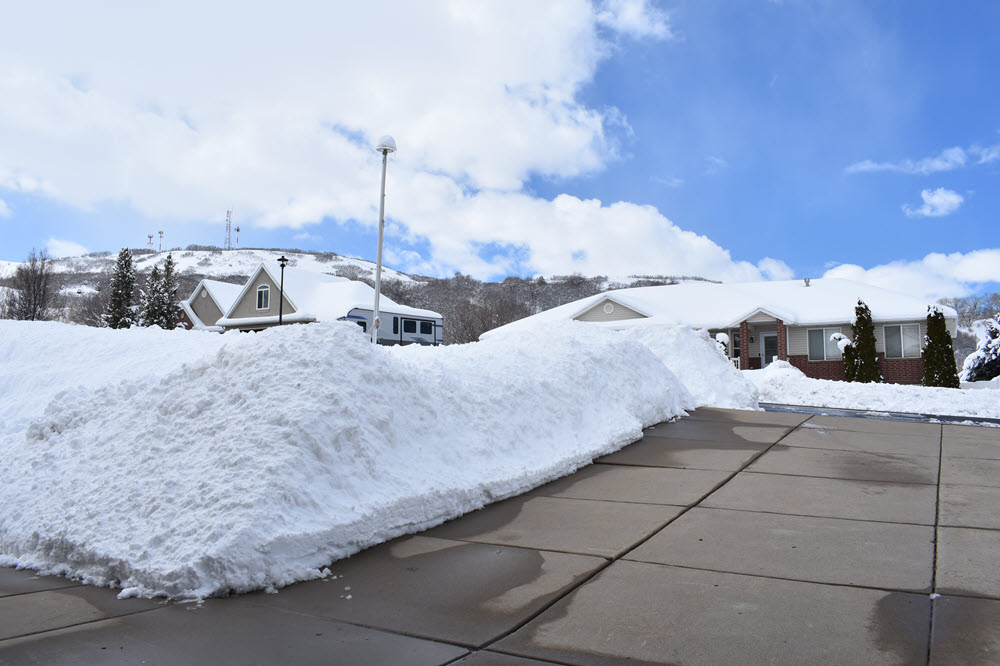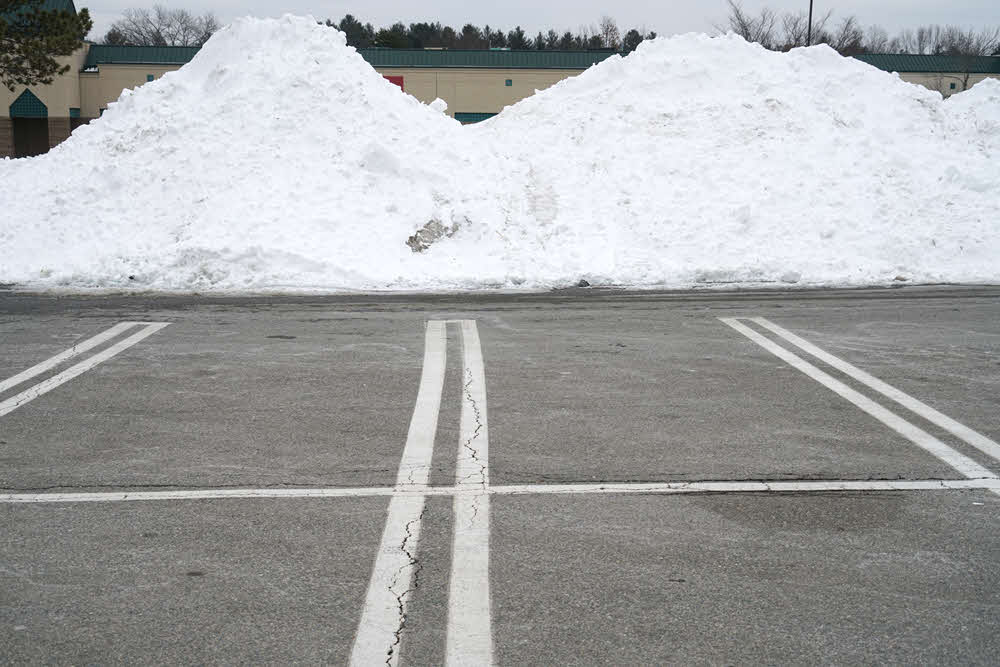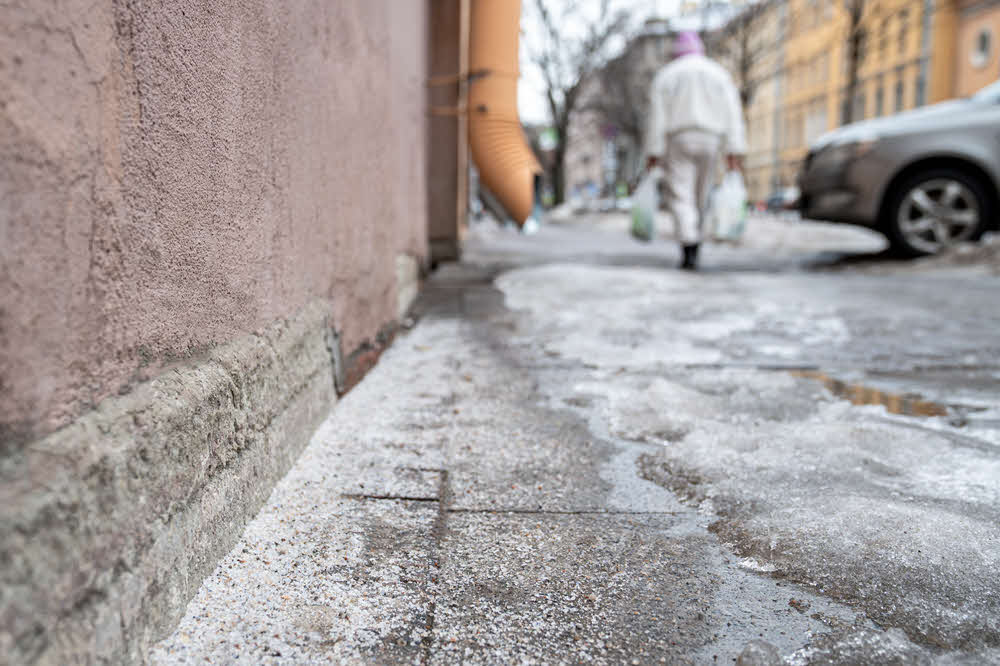Winter Snow Managementin Roseville MI
Customized Winter Management PlansFor Seamless Business Operations
We Are Locally Owned & Operated For Over 37 Years
Contact Us Today!
We Serve Businesses In And Around The Following Cities:
About Winter Snow Management
Introduction
The picturesque city of Roseville becomes an even more enchanting sight when winter drapes a blanket of snow over it. Yet, the beauty of a winter wonderland can bring about operational challenges, particularly for commercial properties. This is where professional Winter Snow Management steps in to ensure efficient operation. In this guide, we delve into the crucial process, the unequivocal benefits, and real-world applications of commercial winter storm management in the bustling city of Roseville.
The Process of Winter Snow Management
Understanding the meticulous process of comprehensive snow and ice management for businesses is fundamental for any property manager. It all begins with an efficient preparation plan, having the commercial area carefully mapped out, and identifying potential trouble spots. As D&J Contracting does, a reliable contractor will offer round-the-clock monitoring of weather conditions, ensuring swift action is taken when the first snowflake lands.
Reliable winter weather services entail not only snow removal but also ice management. Equipped with a state-of-the-art fleet of snow plows, loaders, and skid-steers, D&J Contracting’s professional operators efficiently clear parking lots, sidewalks, and entrances. Yet, the process doesn’t stop there. To ensure absolute safety, ice management using eco-friendly melt products is performed to prevent dangerous slippery surfaces from forming.
Benefits of Professional Winter Snow Management
Outsourcing winter snow management to a reliable provider like D&J Contracting has multiple advantages. Firstly, it saves valuable time and effort, allowing commercial property managers to focus on their core operations. Secondly, it significantly reduces liability. Well-realized snow and ice management provides safer environments, shielding businesses from potential lawsuits resulting from slip-and-fall incidents on their premises.
Another notable benefit is maintaining business continuity. Severe winter conditions can disrupt business activities, affecting profits. Yet, with immediate winter storm management, commercial properties can remain operational, minimizing weather-related losses. Additionally, businesses benefit from aesthetically pleasing premises, which is paramount in creating a positive impression for customers and clients.
Real-World Applications of Winter Snow Management
In Roseville, where winter storms are not uncommon, comprehensive snow and ice management for businesses proves essential across various sectors. For instance, retail stores in bustling complexes like the Rosedale Center benefit greatly from regular, competent snow clearance. This ensures their customers can shop safely and comfortably, even during the harshest winter days. Healthcare facilities, such as the University of Minnesota Health Clinic in Roseville, equally rely on professional winter weather services to maintain accessibility and safety for patients and staff.
Consider also the local office complexes and corporate parks. Their reputation is tied closely to how well they provide a safe, welcoming environment. Efficient and consistent snow and ice management helps maintain that positive image, contributing to the overall success of the businesses within. Herein, the significance of professional snow management can hardly be overstated.
Local educational facilities, like the University of Northwestern – Saint Paul, offer another perfect example. The ongoing operation of such a vast campus, including safe commuting for students and staff, depends on structured and strategic winter storm management. The practical application of professional snow management in these real-world settings simply illustrates its indispensable role in the community.
The Final Reflection
Winter Snow Management is undeniably a vital cog in the wheel that keeps Roseville’s commercial properties running smoothly during wintertime. From retail centers to healthcare facilities, offices, and education campuses, the crucial role of winter weather services is unquestionable. These professional services, like the ones offered by D&J Contracting, do much more than ensuring safe, accessible property grounds. They help uphold an organization’s reputation, ensure business continuity, and play a pivotal part in risk management.
While winter’s snowfall certainly adds a touch of beauty to the cityscape, commercial property managers are tasked not just with maintaining that aesthetic appeal but with juggling it alongside the absolute necessity for safety and functionality. Engaging professional winter snow management services is an investment— one that pays off significantly in the grand scheme of a Roseville winter. It makes the city not just a winter wonderland to behold but a safe and thriving commercial hub throughout the season.
Winter Snow Management Gallery


Call Us Today to receive your Free Quote for
Winter Snow Management in Roseville
Serving: Roseville, Michigan

About Roseville, Michigan
The first permanent post office in the area was established in 1840 by William Rose who named it “Roseville” in honor of his father Dennison Rose, a veteran of the War of 1812.
The village of Roseville was incorporated in 1926, and the municipal building was constructed in 1929 at Gratiot Avenue and Meier Road. This replaced the Erin Township Building that was built near the corner of 11 Mile Road and Gratiot in 1886. The 1929 building housed administrative offices as well as the police and fire departments until the 1960s, when separate police and fire stations were constructed. City offices remained in the building until 1974.
Michigan’s first commercial airport, Packard Field, opened at Gratiot Avenue and Frazho Road in 1919. It was renamed Gratiot Airport in 1929, and later Hartung Field. The Eastgate Shopping Center was constructed on the site in the 1950s.
The Erin-Roseville Library was established in 1936 in one room of the municipal building. The library moved to its own building in the 1960s and into the newly constructed civic center in 1974. In 2010, it was circulating approximately 250,000 items annually.
In 1958, the village and remaining parts of Erin Township were incorporated as the City of Roseville.
An early regional mall, the Macomb Mall, opened in 1964 and is still open today, located west of Gratiot and Masonic.
Roseville is in southern Macomb County, 14 miles (23 km) northeast of downtown Detroit. It is bordered to the east by St. Clair Shores, to the south by Eastpointe, to the west by Warren, and to the north by Fraser and Clinton Township. Mount Clemens, the Macomb county seat, is 7 miles (11 km) to the northeast.
According to the United States Census Bureau, Roseville has a total area of 9.86 square miles (25.54 km), of which 9.84 square miles (25.49 km) are land and 0.03 square miles (0.08 km), or 0.27%, are water.
 I-94 runs north–south, though still signed east- and westbound, along the eastern edge of the city. Between 10 and 12 Mile Roads, it forms the boundary between Roseville and St. Clair Shores.
I-94 runs north–south, though still signed east- and westbound, along the eastern edge of the city. Between 10 and 12 Mile Roads, it forms the boundary between Roseville and St. Clair Shores. I-696 (Walter P. Reuther Freeway) travels east and west through the middle of Roseville.
I-696 (Walter P. Reuther Freeway) travels east and west through the middle of Roseville. M-3 (Gratiot Avenue) (; named after engineer Charles Gratiot) runs northeast and southwest, and (roughly) bisects the city as it connects Detroit to Mount Clemens and points north.
M-3 (Gratiot Avenue) (; named after engineer Charles Gratiot) runs northeast and southwest, and (roughly) bisects the city as it connects Detroit to Mount Clemens and points north. M-97 (Groesbeck Highway), named for Governor Alex Groesbeck, is near the western edge of Roseville. It extends northeast from Detroit and is a high-speed and broad diagonal connector to northern Macomb County.
M-97 (Groesbeck Highway), named for Governor Alex Groesbeck, is near the western edge of Roseville. It extends northeast from Detroit and is a high-speed and broad diagonal connector to northern Macomb County.
- East–west travel is mainly on the mile roads; that is, 10 Mile Road on the south (Eastpointe, formerly known as East Detroit) border through 14 Mile Road on the north border.
- Utica Road is an important diagonal connector that crosses the city from southeast to northwest, starting at Martin Road, near Gratiot Avenue, and extending to the city’s northern boundary at 13 Mile, then to Fraser, Clinton Township, Sterling Heights and Utica beyond.
| Census | Pop. | Note | %± |
|---|---|---|---|
| 1930 | 6,836 | — | |
| 1940 | 9,023 | 32.0% | |
| 1950 | 15,816 | 75.3% | |
| 1960 | 50,195 | 217.4% | |
| 1970 | 60,529 | 20.6% | |
| 1980 | 54,311 | −10.3% | |
| 1990 | 51,412 | −5.3% | |
| 2000 | 48,129 | −6.4% | |
| 2010 | 47,299 | −1.7% | |
| 2020 | 47,710 | 0.9% | |
| U.S. Decennial Census | |||
As of the census of 2010, there were 47,299 people, 19,553 households, and 12,055 families living in the city. The population density was 4,811.7 inhabitants per square mile (1,857.8/km). There were 21,260 housing units at an average density of 2,162.8 per square mile (835.1/km). The racial makeup of the city was 83.1% White, 11.8% African American, 0.4% Native American, 1.6% Asian, 0.4% from other races, and 2.6% from two or more races; 2% of the population was Hispanic or Latino of any race.
There were 19,553 households, of which 30.9% had children under the age of 18 living with them, 38.3% were married couples living together, 17.4% had a female householder with no husband present, 6.0% had a male householder with no wife present, and 38.3% were non-families. 31.7% of all households were made up of individuals, and 11.6% had someone living alone who was 65 years of age or older. The average household size was 2.41 and the average family size was 3.03.
The median age in the city was 37.9 years. 23% of residents were under the age of 18; 8.9% were between the ages of 18 and 24; 28.3% were from 25 to 44; 26.7% were from 45 to 64; and 13.1% were 65 years of age or older. The gender makeup of the city was 48.4% male and 51.6% female.
As of the census of 2000, there were 48,129 people, 19,976 households, and 12,724 families living in the city. The population density was 4,905.6 inhabitants per square mile (1,894.1/km). There were 20,519 housing units at an average density of 2,091.4 per square mile (807.5/km). The racial makeup of the city was 93.43% White, 2.60% African American, 0.42% Native American, 1.63% Asian, 0.03% Pacific Islander, 0.32% from other races, and 1.57% from two or more races; 1.5% of the population was Hispanic or Latino of any race.
Of the 19,976 households, 28.6% had children under the age of 18 living with them, 46.4% were married couples living together, 12.7% had a female householder with no husband present, and 36.3% were non-families. 30.8% of all households were made up of individuals, and 12.6% had someone living alone who was 65 years of age or older. The average household size was 2.40 and the average family size was 3.02.
In the city, the population was varied widely, with 23.1% under the age of 18, 8.2% from 18 to 24, 33.0% from 25 to 44, 20.2% from 45 to 64, and 15.4% who were 65 years of age or older. The median age was 36 years. For every 100 females, there were 93.8 males. For every 100 females age 18 and over, there were 90.1 males.
The median income for a household in the city was $41,220, and the median income for a family was $49,244. Males had a median income of $40,113 versus $26,281 for females. The per capita income for the city was $19,823. About 6.1% of families and 7.9% of the population were below the poverty line, including 9.9% of those under age 18 and 5.8% of those age 65 or over.
Roseville has a council-manager government. Voters elect the six council members, mayor, city clerk and treasurer for four-year terms. The terms are staggered so that only three council members are selected in odd-year general elections.
Roseville is located within the 39th Judicial District with the city of Fraser.
Public schools are operated by Roseville Community Schools and Fraser Public Schools. Roseville Community Schools operates seven elementary schools, two middle schools and one high school. Fraser Public Schools operates two elementary schools in the city.
The charter school Conner Creek Academy East is in the city.
St. Angela School of the Roman Catholic Archdiocese of Detroit operated from approximately 1954 until the 2010s.
Call Us Today to receive your Free Quote for
Winter Snow Management in Roseville
Related Services in Roseville, Michigan
We Serve Businesses In The Following Zip Codes:
48007, 48015, 48021, 48026, 48035, 48036, 48038, 48042, 48043, 48044, 48045, 48046, 48047, 48048, 48050, 48051, 48066, 48071, 48080, 48081, 48082, 48083, 48084, 48085, 48088, 48089, 48090, 48091, 48092, 48093, 48098, 48099, 48225, 48230, 48236, 48310, 48311, 48312, 48313, 48314, 48315, 48316, 48317, 48318, 48397